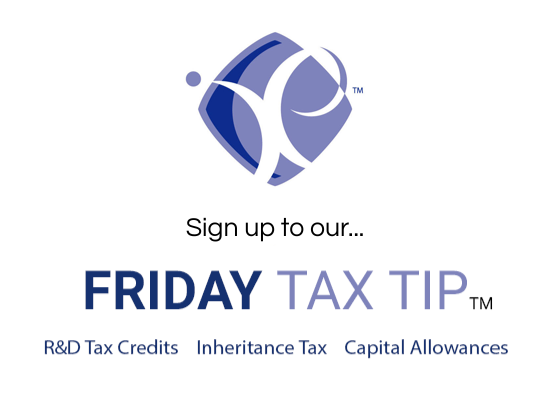Many believe that Making Tax Digital (MTD) is just another fleeting government initiative. But while it might seem like something you can ignore, the reality is quite different.
MTD is very much here to stay, and HMRC has no intention of scrapping it. So, the question becomes not whether you should comply, but whether you have to.
Fortunately, in specific circumstances, HMRC allows exemptions. And if you stick around, there’s even a smart workaround you might not have considered.

(Read Time: Approx. 4 minutes)
Topics Discussed:
- Who qualifies for exemption from Making Tax Digital
- A practical workaround using partnerships to avoid MTD (for now)
Who Can Be Exempt from Making Tax Digital?
Although Making Tax Digital (MTD) is being rolled out widely, not everyone is required to comply.
HMRC has outlined specific reasons where you can be excluded. Here’s the full list based on the most recent guidance.
Digital exclusion due to health, age or disability
If you are unable to use digital tools because of your age, a physical or mental health condition, or a disability, you may qualify for exemption.
This includes people who:
- Are visually impaired
- Have conditions like severe arthritis that affect dexterity
- Suffer from cognitive impairments or mental health conditions
- Are hospitalised long-term or otherwise incapacitated
Remote location and no internet access
Living in a rural or isolated area where internet access is not reasonably available can also qualify you.
However, you must be able to show that you:
- Cannot access internet services from home
- Cannot travel to a library or other location with internet access
Religious beliefs
If your religious beliefs prevent you from using computers or digital communications, you can apply for exemption.
This applies to individuals whose faith restricts them from using electronic devices or the internet.
Mental capacity and other severe circumstances
You may also be exempt if:
- You lack the mental capacity to manage digital tax records
- You are illiterate or unable to manage your affairs due to personal limitations
- You are in long-term care or otherwise unable to engage with digital processes
Automatic exclusions
In addition to those who apply for exemption, some individuals are automatically excluded from MTD for Income Tax, including:
- Trustees of deceased estates or non-registered pension schemes
- Personal representatives of someone who has died
- Non-resident companies
- Lloyd’s members in relation to their underwriting business
- Individuals who did not have a National Insurance number by the end of the previous January before the tax year starts
Income threshold
MTD for Income Tax will only apply if your total gross income from self-employment and property exceeded £50,000 in the 2024–25 tax year, then £30,000 in 2025–26, and eventually £20,000 in 2026–27.
If your income falls below those levels, you won’t be required to join the scheme.
And finally, a word of caution: HMRC is clear that just being unfamiliar with software, or having cost or time concerns when switching to digital records, will not by itself grant exemption.
Key Tip on MTD Thresholds
Here’s something few people realise. MTD will be rolled out gradually based on income thresholds, and the timeline matters.
If you’re self-employed or have property income (like rent), here’s how the thresholds apply:
- April 2026: MTD applies if your combined self-employment and rental income is over £50,000
- April 2027: Threshold drops to £30,000
- Future: HMRC intends to reduce this further to £20,000
So, if you’re earning over £20,000 through self-employment or property, MTD is likely to affect you within the next couple of years.
This includes a huge number of tradespeople – subcontractors, joiners, bricklayers and more.
With quarterly tax returns required, this is not going to be a minor admin task. It will require consistent digital record keeping and regular submissions.
Smart Workaround for the Self-Employed
If you’re unsure whether an expense is business or personal, don’t let your accountant or bookkeeper shove it into the DLA “dumping ground”.
Instead, use a suspense account to park questionable transactions until they’re reviewed and properly categorised.
This gives you time to make sure you’re not inflating your DLA with expenses that could later come back to bite you.
Profit vs Withdrawal Mismatch
Now here’s the tip, a perfectly legal method to avoid MTD.
Form a Partnership
That’s right. MTD rules currently do not apply to partnerships.
So, if you’re self-employed and dreading the digital tax shift, consider forming a partnership with your spouse or a trusted associate.
This simple structural change could allow you to continue submitting your returns annually rather than quarterly, giving you some breathing space before MTD is eventually extended to partnerships too.
There’s no confirmation yet on when or if partnerships will be pulled into MTD. So for now, this is a genuine loophole worth exploring.
Summary
Making Tax Digital is not going away, but not everyone has to comply right now.
If you’re dealing with serious health issues, remote living, or follow a religion that prohibits technology, you may be eligible for exemption.
But even if you don’t qualify for a formal exclusion, restructuring your business into a partnership could buy you time.
It’s a complex area, and HMRC’s rules are strict.
If you’re unsure whether you qualify for exemption or need help assessing whether a partnership setup is right for you, get in touch with us at Tax Expert for practical, tailored advice.
Fill out our form here for any questions, email us at info@taxexpert.co.uk, or message us on our WhatsApp for out of office hours.
Kind regards,
Ilyas Patel

